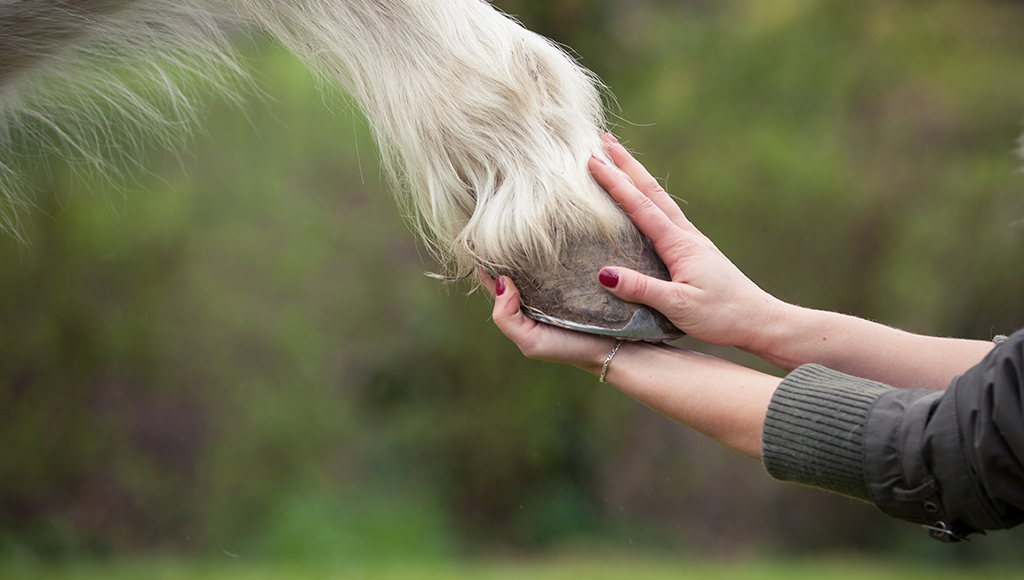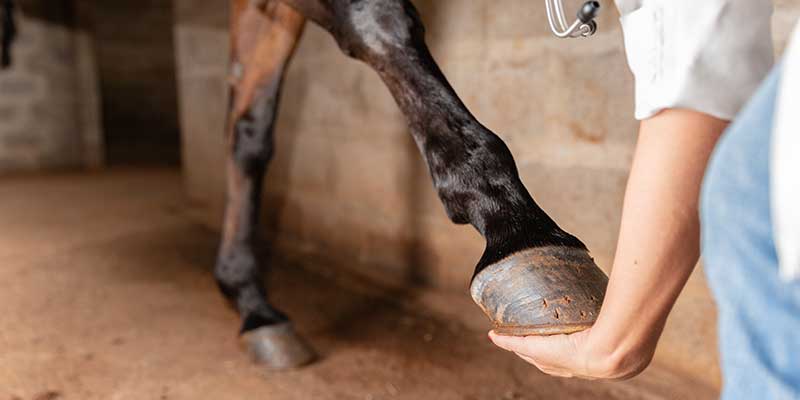
What Happens If a Horse Loses a Hoof? Shocking Insights Inside
Share
If you've ever been around horses, you might have wondered, what happens if a horse loses a hoof? This isn't just a question for equestrians but for every health-conscious pet owner. The hoof is vital for a horse's well-being; losing one can dramatically impact their quality of life.
In this article, well delve into the implications of hoof loss, the remarkable technology available for treatment, and the steps a pet owner can take to ensure their horse leads a healthy life even after such an incident. Understanding this situation is crucial, especially when caring for these majestic animals. Let's start with what hoof loss means.

The Structure and Importance of a Horse's Hoof
The hoof is an intricate structure consisting of various parts, including the hoof wall, sole, frog, and digital cushion. All these components play a critical role in supporting movement, absorbing shock, and providing stability. Without a hoof, a horse cannot walk, trot, or gallopactivities that are essential for both their physical and mental well-being.

Common Causes of Hoof Loss
There are several reasons why a horse might lose a hoof. Some of the most common causes include:
- Injury: Trauma such as stepping on sharp objects or getting caught in a fence can lead to hoof loss.
- Infection: Conditions like laminitis or thrush can weaken the hoof and lead to its detachment.
- Hoof Diseases: Diseases such as laminitis directly affect the hoof's integrity.

What to Expect When a Horse Loses a Hoof
When a horse loses a hoof, it can be a traumatic experience for both horse and owner. The immediate effects are often painful. Horses are prey animals and their instinct is to hide pain. Therefore, it might not manifest as overt distress but rather as subtle behavior changes like reluctance to move.
After losing a hoof, a horse will likely require medical attention. This can include:
- Pain Management: Veterinarians will typically prescribe pain relief.
- Wound Care: Properly tending to the area where the hoof was lost is essential.
- Prosthetics: In some cases, hoof prosthetics can be applied to assist with mobility.

Health Risks After Hoof Loss
Aside from the initial injury's immediate physical ramifications, a horse that has lost its hoof faces several potential long-term health issues:
- Joint Problems: An imbalance in the way a horse moves can lead to joint problems over time.
- Behavioral Changes: Pain or difficulty in mobility may lead to stress-related behavior changes.
Preventative Measures for Hoof Health
As a health-conscious pet owner, consider incorporating treatments and preventive measures to keep your horse's hooves in excellent condition. Here are some terrific techniques you can use:
- Regular Hoof Care: Consistent trimming and maintenance are vital.
- Nutrition: Proper diet can promote hoof health.
- Environmental Care: Ensure the horse has a clean, safe living space to minimize injury risks.
- Hoof Trimming Guide
Technology in Hoof Care
There are so many remarkable technology advancements in hoof care today:
- 3D Printing: Some veterinarians are utilizing 3D printing for custom hoof prosthetics.
- Smart Wearables: Devices that monitor hoof health and condition in real-time.
Emotional and Behavioral Adjustments Post-Injury
After a horse loses a hoof, emotional and behavioral changes may occur. Horses are social creatures, and their behavior might be impacted by stress and pain. Key things to observe include:
- Change in Mood: Owners should be vigilant for signs of depression or anxiety.
- Altered Social Dynamics: A horse that has lost a hoof might isolate itself from companions.
Support Resources for Owners
Taking care of a horse that has lost a hoof is demanding, but many support resources are available. Seek guidance from your veterinarian and local equestrian associations for help. Online resources can also prove beneficial.
Dont forget that a community exists for you. You can join forums and support groups to get advice from fellow horse owners. Their experiences can be invaluable.
Frequently Asked Questions (FAQs)
1. Can a horse survive with one hoof?
While it is challenging, some horses can adapt to living with a hoof prosthetic. Regular vet visits and adjustment periods are necessary.
2. How long does recovery take after hoof loss?
Recovery varies and can take anywhere from weeks to months depending on the severity of the loss and any infections.
3. What can I do to help my horse recover?
Provide a safe environment, ensure adequate pain management, and visit your veterinarian frequently for check-ups and advice.
As an Amazon Associate, I earn from qualifying purchases.
